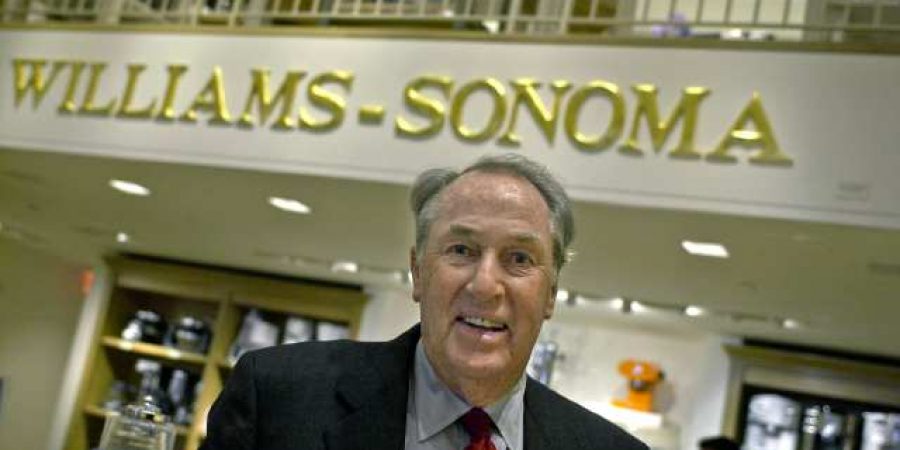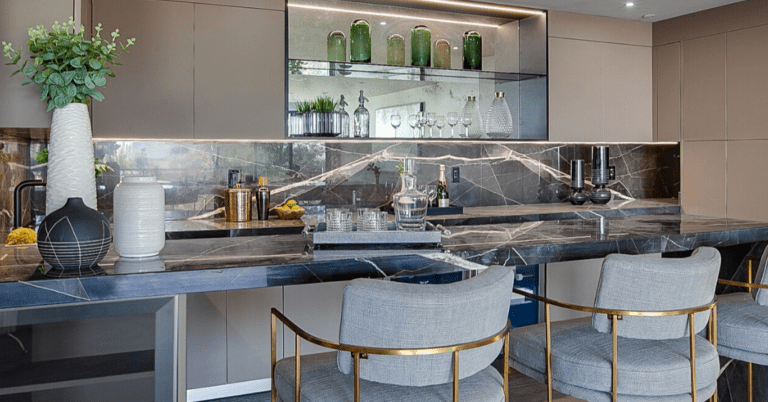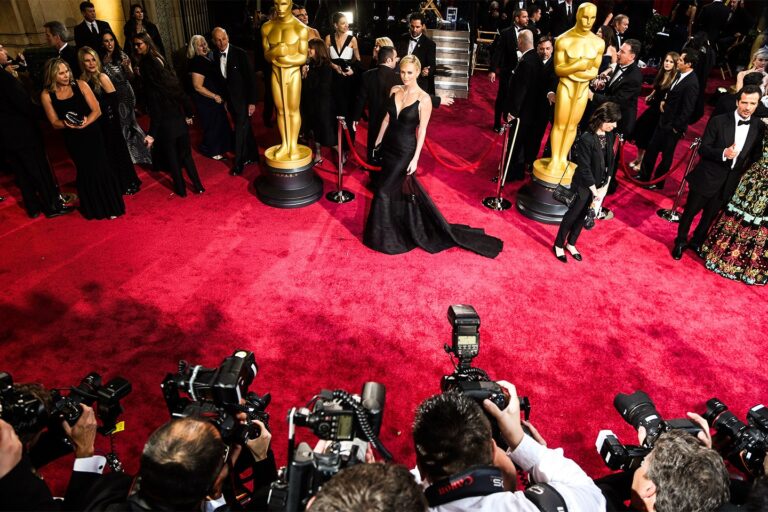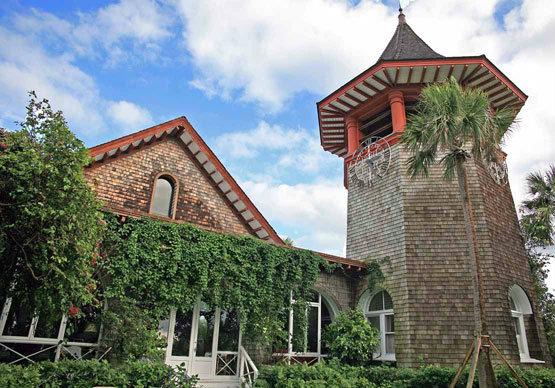There are few people who have touched so many lives as my former employer W. Howard Lester. 20 years before I met Mr. Lester, I was enamored by his brand. When the Williams-Sonoma catalog came each month, I oogled the products, fantasized over the perfectly styled kitchens, and dreamed that one day I would make perfect spritzer cookies with my very own amazing Danish cookie press. The pop-up sponges fascinated me. I recall when I told Mr. Lester that he laughed and said ‘Man, we sold gazillions of those things’!
I was delighted to work for him several years ago in his homes in San Francisco, Glen Ellen, Palm Springs, and Los Angeles. Not only did I have an endless supply of pop -up sponges, but also an open tab at every Williams-Sonoma in the world. I got to try everything; Every new espresso machine, every use-once-a-year specialty tool, every mill, grinder, grater, strainer, popper, cutter, puffer, and foamer in the catalog. Died-and-gone-to-heaven kind of delight.
Howard Lester met Chuck Williams over lunch in San Francisco in 1978. Chuck had turned an old hardware store into a cookware shop full of items he’d gathered from shopping trips to France. Howard had some money to invest and saw a way to use his business skills and passion for entertaining to grow the brand. It was the beginning of 32-year partnership that saw an expansion of the brand to include Williams-Sonoma Home, Pottery Barn, PB Kids and Teen, West Elm, and the newly added Rejuvenation and Mark and Graham.
Mr. Lester loved his stores, and he loved the people who ran them. Mr. Lester could tell you the name of each of his managers and something about them that he remembered from the annual manager’s conference. He was excited about every idea and product they discovered and would bring to the catalogs. His excitement and passion was contagious. His people loved him him for it in return.
Mr. Lester’s marketing instincts to create a scene, and put people in the middle of a moment they wanted to have, transformed catalog shopping into a form of voyeuristic storytelling. His vision was far ahead of his time, and it showed in the company’s success.
Mr. Lester used those financial successes to improve the lives of others through his philanthropy. The Lesters supported education, medical research, youth programs, and the arts in San Francisco and Mr. Lester’s home state of Oklahoma. He founded The Lester Center for Entrepreneurship and Innovation at the Haas School of Business at UC Berkeley and endowed a gorgeous addition to the University of Oklahoma’s Fred Jones Jr. Museum of Art. The Lesters funded vital cancer research programs at MD Anderson Cancer Center in Houston, UCSF Comprehensive Cancer Center and always promoted the St. Jude Children’s Research Hospital drive throughout the Williams-Sonoma brands. On a smaller scale, he always had a buck on his pocket and words of encouragement for the people in need on the street. He was a very active supporter and mentor at San Francisco’s Delancey Street Foundation, an organization that reached out to those who had reached the lowest points in their lives.
Even a decade later, I am saddened to think of Mrs. Lester in the past. He was so large a personality and so great a man. In one of the last conversations we had, he told me that he wished we’d had less formal of a relationship. He said he thought I was a great gal and we’d have been good friends if I’d just have sat down for a moment and had a drink with him. I remember being surprised by that, as I was always emulating his professionalism, and tried intentionally not to get too personal. I thought his invitations for scotch were just him being polite. I’m sorry to have misread that. I’m sure those would have been enlightening conversations.
I still get the catalogs, and I still buy the pop-up sponges. I still aspire to have a beautiful table filled with wonderful food I made with exotic gadgets and unique ingredients. And I still choose West Elm over CB2 every time.



